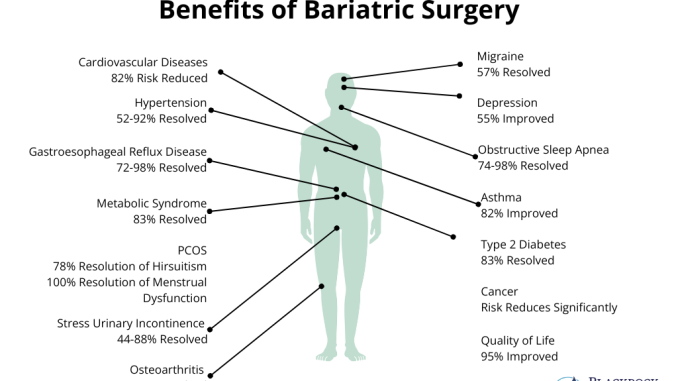
With obesity rates on the rise globally, weight loss surgery has become an increasingly popular option for those struggling to shed excess pounds. Bariatric surgery, as it is also known, involves a variety of procedures that aim to help individuals lose weight by altering their digestive system.
The Benefits of Weight Loss Surgery
One of the most significant benefits of weight loss surgery is the dramatic weight loss that can be achieved in a relatively short period of time. This can not only improve a person’s physical appearance but also their overall health and quality of life.
Weight loss surgery has also been shown to be an effective treatment for obesity-related conditions such as type 2 diabetes, high blood pressure, and sleep apnea. Many patients find that their symptoms improve or even disappear altogether after undergoing bariatric surgery.
The Risks of Weight Loss Surgery
While the benefits of weight loss surgery are clear, it is important to understand that there are also risks involved. As with any surgery, there is always a risk of complications such as infection, blood clots, and anesthesia-related issues.
Additionally, weight loss surgery can lead to nutritional deficiencies as the body may have difficulty absorbing certain vitamins and minerals. This can result in health problems such as anemia, osteoporosis, and malnutrition if not properly managed through dietary supplements.
Choosing the Right Procedure
There are several types of weight loss surgery available, each with its own set of risks and benefits. It is important to consult with a qualified healthcare provider to determine which procedure is best suited to your individual needs and health goals.
The most common types of weight loss surgery include gastric bypass, gastric sleeve, and gastric banding. Each procedure works by either restricting the amount of food that can be consumed or altering the way in which the body digests food to promote weight loss.
Long-Term Success and Maintenance
Weight loss surgery is not a quick fix or a cure-all for obesity. In order to achieve long-term success, patients must be willing to make significant lifestyle changes including adopting a healthy diet and regular exercise routine.
Monitoring your progress, attending follow-up appointments, and staying in touch with your healthcare provider are all crucial for maintaining weight loss and preventing weight regain after surgery. Support groups and counseling can also be valuable resources for navigating the emotional and psychological challenges that often accompany significant weight loss.
Conclusion
Weight loss surgery can be a life-changing procedure for individuals struggling with obesity, offering a chance to improve their health and wellbeing. However, it is important to weigh the risks and benefits carefully before making a decision and to approach the process with realistic expectations.
By understanding the potential risks and benefits of weight loss surgery and committing to making lasting lifestyle changes, patients can achieve long-term success and improve their quality of life for years to come.
Remember, the path to a healthier you begins with informed decisions and a commitment to your long-term well-being.
Stay informed, stay proactive, and make the choices that are right for you.
Your health is your greatest asset, and investing in it is the best decision you can make.
Here’s to your health and happiness!
